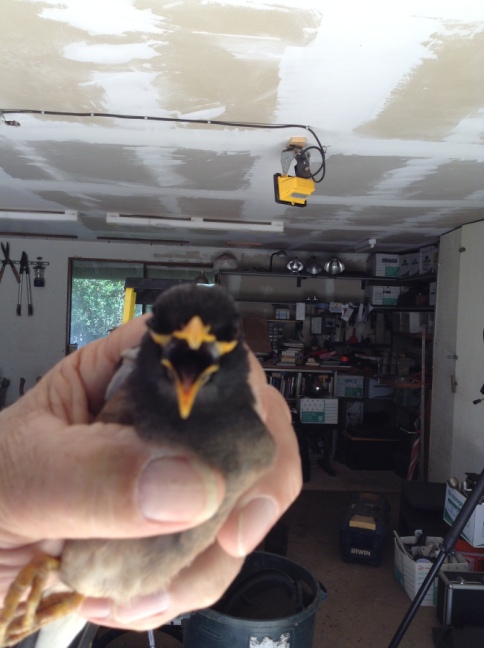For a long time I believed that being an academic wasn’t just the best career for me – which it clearly was, I loved it – but one of the best it was possible to have, especially within a university system committed to expansion. Yet recently I took voluntary redundancy after teaching in the humanities at Middlesex University for 18 years, and for the foreseeable future I have no desire to work in any university in this country – or, I imagine, elsewhere.
The attack on universities takes many forms. My focus here is on attacks from within: attacks on staff, academic and administrative, and attacks on knowledge that come from inside universities themselves. ‘Universities’ is not a simple plural. The ‘academy’ is a messy conjunction of increasingly conflicting elements and interests and these cut across the familiar oppositions between old and new, rich and poor, deserving and undeserving. Thus Middlesex is not just or most importantly a struggling post-1992 institution. Its management worked out a long time ago that survival and success did not lie with domestic students. The university has two overseas campuses – in Dubai and Mauritius – and is actively searching for a site and partners for a third, probably in India. Like many others, it has attempted to commodify as many of its assets as possible: courses and programmes in the form of franchises; research; and various types of higher educational and pedagogical expertise.
It wasn’t always like this. When I arrived in 1993 and for a good number of years after that, it was a wonderful place to work. Demand in the humanities was buoyant, and this was crucial to the opportunities we had to build teaching programmes from scratch and rebuild others, and to do our own research, encouraged both by the intellectual culture in which we worked, and by something else that has become increasingly rare: sabbatical leave.
Today the most reliable communiqué from the institution is the corporate newsletter. By ‘reliable’ I mean that it arrives regularly and contains no bad news. It is the familiar story of visions delivered, research impacting, champions championing. This corporate version of the institution is completely at variance with the lived reality of the staff and most of the students. These representations, like much else, exist for the benefit and reassurance of foreign partners, actual and potential. Meanwhile, on another part of the website, the voluntary redundancy scheme is now permanently open, punctuated by frequent compulsory redundancy operations. Both are designed to erode morale and force staff to accept increasingly degraded conditions of ‘service’.
Discrepancies of this kind are a part of everyone’s working life, but at Middlesex they were particularly jarring. In nearly all respects ours is an institution with no past. I do not mean by this that it does not have 500 years, or 150 or 50 years of history and tradition to look back on. I am talking instead about the managerial embrace of a particularly degraded form of the modern. The management speciality is ‘radical’ reorganisations: of teaching programmes, organisational structures and research priorities, all of which must be achieved at absurdly accelerated rates. Such revolutions are always justified as a necessary response to external conditions and to a future whose only certain quality is its uncertainty. Emergency is our everyday: it is always wartime.
When yet another one of these restructurings is declared, what we do – teaching, thinking, writing, marking, planning – is never taken into consideration. It counts neither as activity nor as value. Anyone who expresses reservations about the direction chosen for the future is, by definition, inflexible and disloyal. This is a particularly cynical version of modernity. No one wants to be on the wrong side of the future, and that future is achievable only through a complete cancellation of the past.
This revolutionary tempo sits uncomfortably with the rhythms of teaching and research. Last year Middlesex closed down its philosophy department, which has since moved to Kingston. It was an excellent department. It also had all the contemporary indicators of ‘research excellence’. When I asked my dean about the decision, it was obvious that excellence hadn’t been enough to save the department, so I asked him why the extensive funding the unit had earned from its RAE scores and various other funding sources had been no protection against immediate closure. He was (for once) perfectly clear: ‘But that’s over, that’s finished,’ he said, meaning that what was already earned simply did not count.
Within this ‘logic’, it is virtually impossible for an individual or group to accumulate intellectual value or capital, much less trade on it. This may sound – and it obviously is – cack-handed and incompetent, but something of the same logic is at work in the short-termism that is currently remaking the academic workforce.
Many university departments simply could not function without the energy, talent and goodwill of part-time lecturers, but the pattern of a skeleton permanent teaching staff supported by part-timers and those on teaching-only contracts has become a model for staffing in many institutions, and not just because it is cheaper. Those small numbers of permanent staff are increasingly going to be employed to develop, write and monitor courses that they will not teach and that exist primarily as units for sale or rent to a variety of markets, national and global. Little, if any, thought has been given to the impact of this on teaching and learning by the universities adopting this model. This commodifying of a course or a degree programme or a set of quality procedures is bad news. For one thing, the majority of academics and students are becoming ever more remote from the places where knowledge is produced. It is now seen as naive to insist on the natural connections between teaching and research.
Further, the global market, rightly or wrongly, is seen as a very conservative place: the role of self-censorship, the weeding out of anything that might prove controversial, is a necessary consequence of the edu-business model. The result is courses that become ever more anodyne as they compete to imagine the inoffensive. In various departments at Middlesex, course content is already indirectly determined by partner institutions, national and international: it can’t be taught here, unless it is taught there.
There has been a good deal of discussion about the direct pressures put on academics to produce work that sits comfortably within the research assessment criteria. However, I would suggest that as the financial situation worsens, institutions will need to apply less pressure on researchers to go where the money is. Academics will make their own adjustments, will internalise the priorities of the funding councils, and adopt them as their own. Soon they will become adept at second or even third-guessing them. Such pragmatism probably doesn’t make for very good research. But that pragmatism is likely to be strengthened as the nature of research itself is redefined.
In various forms of higher educational discourse, research is already starting to float free of ‘content’, that tricky, highly specialised, fancy knowledge that presents such a challenge to institutions such as Middlesex. Education is becoming a training in learning. Students learn a good deal about how to ‘do’ team-work and assess their peers, but rather less about the Victorian Novel or the Role of Literature in the Contemporary. Similarly, research has come to mean one of two things: the quantifiable thing that needs to score well in the Research Excellence Framework, or a set of transferable practices or methods.
These practices, increasingly generic and cross-disciplinary, are being taught to postgraduates, and increasingly to undergraduates, particularly those in what are now called ‘research-rich institutions’ looking for ways to justify their fees. Just as the good manager takes pride in being able to manage anything, so the good researcher will take pride in being able to research anything. Not knowing much about a subject area will present no difficulty, rather it might be considered an advantage, for the researcher will be untroubled by disciplinary loyalty – just like the manager who comes in from outside.
This may seem hyperbolic, but there are already strong precedents for this sort of approach in both management and teaching. And perhaps it isn’t so very far away from happening in academia. I recently chanced upon a website that provides students in humanities and social sciences at a UK university with information about the various types of research training available to them. Some of these were valuable – training about writing for publication, conferences, the profession and so on (we would be fools to reject professionalisation) but I was brought up short by a workshop on ‘the literature search’:
This second interactive workshop will provide an opportunity to find out how to identify the most important and influential literature from the literature search. Participants will use measures to identify journals with high impact factors, articles with large citation counts, and influential authors. Strategies for reading will also be discussed, as well as understanding how much to read, when to stop, and options for taking effective notes from reading materials.
This doesn’t call for elaborate interpretation. However, I find the unthinking correlation between ‘influential literature’ on the one hand and ‘high impact factors’, ‘large citation counts’ and so forth, rather worrying. Even before the first REF has run, its metrics have been adopted as the primary indicators of value and esteem. This research programme is offered, I might add, by a Russell Group university. Of greatest concern, perhaps, is that the training offered here is totally divorced from any particular body of material. Faced with such a free-floating model of what knowledge is, perhaps we should all think a little more carefully about the future of that proprietary ‘my’ in ‘my research’.





 photo prompt by J Hardy Carroll
photo prompt by J Hardy Carroll







